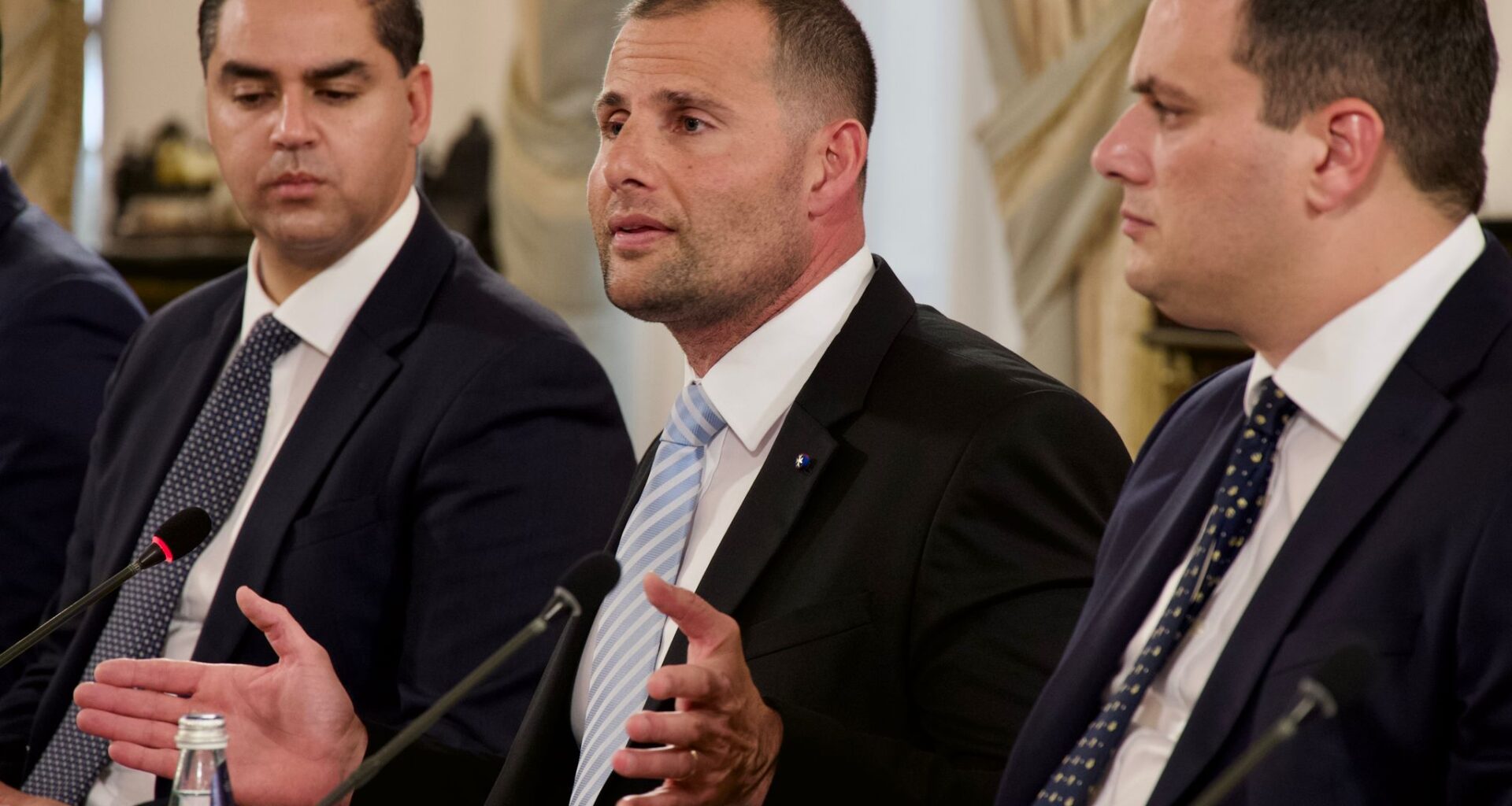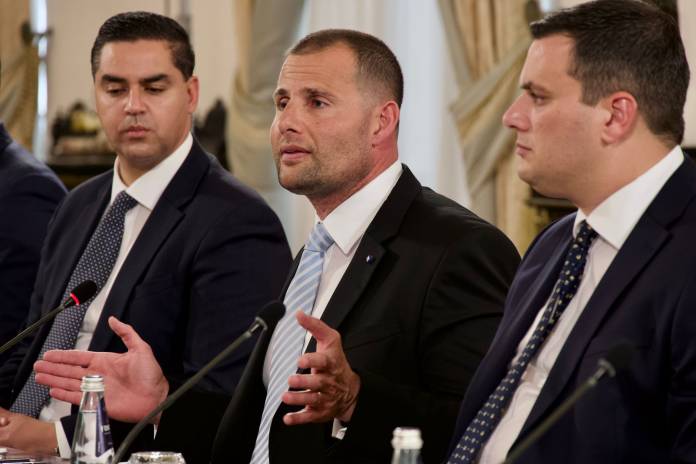The European Commission’s Rule of Law Report has once again delivered a scathing indictment of Malta’s democratic credentials, exposing the Labour government’s abject failure to implement crucial reforms protecting journalists, ensuring media independence, and establishing basic human rights oversight.
The damning 2025 Rule of Law Report shows that Malta has made no progress whatsoever in adopting legislative safeguards to protect journalists, despite mounting pressure from Brussels and civil society organisations.
This represents a staggering dereliction of duty, particularly given the brutal assassination of Daphne Caruana Galizia in 2017—a murder that shook the nation and exposed the toxic culture of impunity that the government has systematically fostered.
The government’s response to the 2021 public inquiry, which found the state culpable in creating conditions that enabled Caruana Galizia’s murder, has been one of calculated inaction. Draft legislation introduced in 2022 remains gathering dust, unconsulted and woefully inadequate by international standards.
This deliberate foot-dragging reveals a government more interested in protecting its own interests than safeguarding the fundamental democratic principle of press freedom.
The situation regarding access to official documents is equally damning. Despite being granted European funds specifically to improve transparency, Malta has achieved only limited progress, a euphemistic assessment that barely disguises the government’s systematic obstruction of information access.
The Freedom of Information Act remains a toothless instrument, deliberately weakened to shield the administration from scrutiny.
Most tellingly, the government has brazenly withheld a report compiled by its own media experts’ committee, a move that exposes the hollow rhetoric of transparency whilst demonstrating active contempt for public accountability.
Public Broadcasting Service: A propaganda machine in democratic clothing
The Commission’s finding of no progress in strengthening the independence of public service media represents a fundamental assault on democratic pluralism.
TVM and other state-controlled outlets continue to function as little more than government propaganda vehicles, their editorial independence compromised by political appointments and opaque financing arrangements.
The Media Pluralism Monitor 2025 categorises Malta’s public broadcaster as posing a “very high risk” to media pluralism—a designation that should shame any democratic government. Yet Malta’s Broadcasting Authority continues to operate under a cloud of political interference, with European standards for impartiality treated as mere suggestions rather than binding obligations.
This systematic capture of public media represents a textbook example of democratic backsliding, where institutions meant to serve the public are perverted into tools of political control. The government’s refusal to implement meaningful reforms exposes its authoritarian instincts and fundamental disregard for democratic norms.
Human rights oversight: A gaping void in Malta’s democratic architecture
Perhaps most alarmingly, Malta has made no progress in establishing a National Human Rights Institution compliant with the UN Paris Principles—a basic requirement for any functioning democracy.
This failure is particularly egregious given that establishing such an institution has been a longstanding recommendation from multiple international bodies.
The government’s promise to introduce legislation by June 2025 has predictably evaporated, leaving Malta without proper human rights oversight mechanisms. The Ombudsman’s sensible proposal to assume this role remains unanswered—a telling silence that speaks volumes about the government’s commitment to human rights protection.
This institutional vacuum is not accidental; it reflects a deliberate strategy to avoid independent scrutiny of government actions. Without proper human rights oversight, Malta’s citizens remain vulnerable to state overreach and abuse of power.
Justice system: Mired in delays and corruption scandals
Whilst Malta has made marginal progress in judicial reforms, including involving the judiciary in appointing the Chief Justice, the system remains plagued by unconscionable delays. Civil cases drag on for an average of 454 days, whilst administrative cases languish for a staggering 1,350 days—timeframes that make a mockery of the principle that justice delayed is justice denied.
More troubling still is the glacial pace of high-level corruption investigations. Despite numerous scandals involving senior government figures, Malta has failed to establish a robust track record of final convictions. This pattern of impunity sends a clear message: political connections provide effective immunity from prosecution.
The government’s controversial restrictions on magisterial inquiries into corruption—introduced under the guise of “reform”—have been widely condemned as an attempt to shield corrupt officials from investigation. This represents a deliberate weakening of anti-corruption mechanisms at a time when stronger oversight is desperately needed.
EU Recommendations: A roadmap Malta refuses to follow
The Commission’s recommendations read like a basic primer in democratic governance—measures that any self-respecting democracy should have implemented decades ago:
Protect journalists: Adopt comprehensive safeguards meeting European standards, including meaningful access to official documentsReform public media: Ensure genuine editorial independence through transparent governance structuresEstablish human rights oversight: Create an NHRI aligned with UN Paris PrinciplesImprove justice efficiency: Eliminate unconscionable case backlogs and expedite corruption investigationsEnhance democratic participation: Introduce formal frameworks for legislative consultation
The fact that these elementary democratic requirements remain unmet in 2025 represents a damning indictment of Malta’s political leadership.
However, the report also highlights a number of areas where some kind of progress was achieved. In the justice system, Malta saw perceived judicial independence remain high among the public and increase among companies. The transfer of non-summary prosecutions from Police to the Attorney General’s Office is complete.
Additionally, steps were taken to enhance the digitalisation of justice, and although lengthy proceedings remain a concern, “certain groundwork was set in motion to enhance the efficiency.”
For the anti-corruption framework, human resources for investigative and prosecution authorities were increased, and “new tools were developed to reduce the length of investigations of high-level corruption cases.” Integrity measures for the public service and police force also continue. Malta also enacted specific legislation on cross-border strategic lawsuits (SLAPPs)
Faced with this damning EU assessment, the government’s response has been predictably defensive and tone-deaf. Justice minister Jonathan Attard’s press release highlights minor procedural improvements whilst ignoring the fundamental democratic deficits highlighted by Brussels.
The government’s claim that the report “confirms Malta’s commitment and significant improvements” is questionable given the Commission’s explicit findings of “no progress” on critical reforms. Attard’s emphasis on “perceived independence” of the judiciary, rather than actual independence, reveals the government’s preference for optics over substance.
Most tellingly, the government attempts to blame the Opposition for blocking constitutional reforms requiring a two-thirds majority, conveniently ignoring that meaningful press freedom and media independence reforms require no such parliamentary supermajority.
The minister’s boast about Malta being “the first EU Member state to transpose the Anti-SLAPP Directive” rings hollow when the same government has systematically weakened other protective mechanisms for journalists and civil society.
Malta may have been the first country to traspose the Anti-SLAPP law but critics, including the Opposition and media watchdogs, argue Malta implemented only the “bare minimum” required by the EU, missing broader reforms seen in Ireland and other countries.




